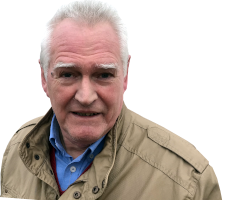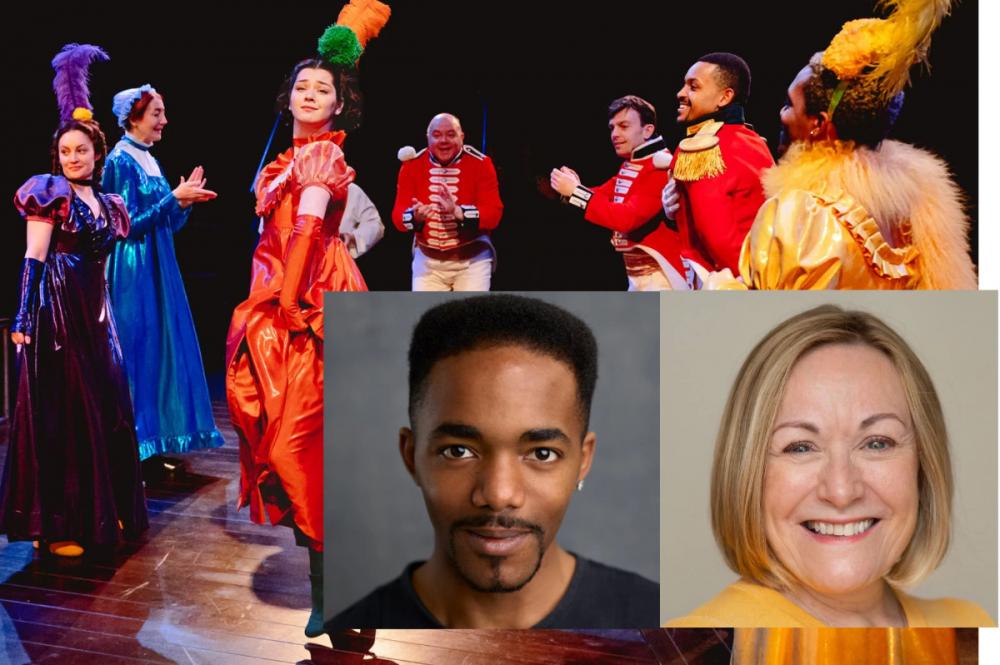search
date/time
 | Yorkshire Times Weekend Edition |

Mike Tilling
Arts Correspondent
12:00 AM 19th June 2023
arts
Interview
Northern Broadsides: Gilly Tompkins And Jelani D’Aguilar

Jelani D’Aguilar and Gilly Tompkins and the cast of Quality Street. All photos from Northern Broadsides
When I open with a question about their favourite part of the play, both reply that the prelude scene of the modern day factory workers is their first choice. They point out that it is not a scripted part, but taken verbatim from a recorded group discussions which is then included as a contrast with Barrie’s world of a Nineteenth Century comedy of manners. The play is actually set very early in the century, both before and after Waterloo. The second scene they liked was the mock ‘ball’ scene where the dance falls somewhere between a formal quadrille and modern street dance.
The factory workers scene is important, of course, because they are all from the Mackintosh’s factory in Halifax, the origin of the Quality Street chocolates. Typically for Northern Broadsides, the Halifax accents are essential in establishing the distinctively regional atmosphere.
One of the themes is the role of women in society. Some of Barrie’s lines have been recast naming men instead of women in dismissive terms. This works both as a comic device and a commentary on changing social norms.
Gilly’s two roles in the play are as Barbara – one of the factory workers – and Patty, the faithful retainer of the Throssel family. I ask her about how do actors switch so seamlessly between roles. She glances at Jelani, who has three roles to play. Again, they nod in agreement as they explain that it is the result of training and experience, although there is quite a contrast between scenes of farce and those portraying changes in the roles of women.
Acting in the round has considerable bonuses for actors, Gilly explains. For example, the night I saw the show, the laughter of one particular audience member seemed to release the audience from its reticence and animate the actors.
The relatively modest size of the Stephen Joseph Theatre means that the actors can monitor reactions and feel how the audience is responding. Gilly, who has worked in Scarborough before, performing in Alan Ayckbourn and John Godber plays, feels that being able to see the audience helps with performance. This is not so easy in large, proscenium arch, theatres.
The show in Scarborough comes towards the end of a long tour. Having worked together for so long, the ensemble feel that they know each other well and this helps with techniques of timing in landing the jokes.
One of the questions I do not ask is how do actors cope with the physical demands of such a long run. Given their apparent enthusiasm at our meeting, it seemed somehow irrelevant.